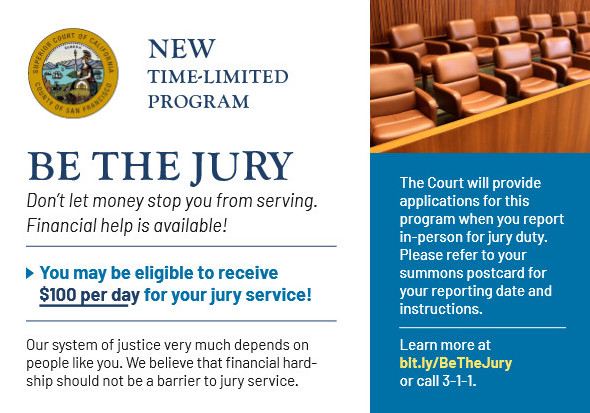
Throughout the month of October, California Governor Gavin Newsom vetoed 145 bills of the roughly 900 proposed bills created and passed by the state legislature. One of these bills, Assembly Bill (AB) 881, was created with the intention of building more representative juries. Newsom vetoed AB 881 on October 8, 2023. Why?
San Francisco Assembly Member Phil Ting created the bill, claiming that it would allow for more juries to be representative of differing racial and socioeconomic backgrounds. “It’s critical that we stand by our promise when we tell every defendant they have the right to a jury of their peers,” Ting said in an interview with the San Francisco Chronicle in October.
In addition to San Francisco, the bill would have applied to four other counties in California selected by the Judicial Council. The Council would administer funding for the bill, but the state could also accept private donations.
The bill was proposed as an extension of San Francisco’s current Be The Jury Pilot Program. The Be The Jury Pilot Program was authorized by AB 1452, which Newsom signed into law in October 2021. Many San Francisco government officials approved of the pilot program, including California State Senator Scott Wiener, who co-authored the bill with Ting. Enacted in March 2022, the pilot program pays low to moderate-income jurors in the city $100 a day instead of the previous wage of $15.
“When our juries aren’t as diverse as the general population, it leads to a serious equity issue in our criminal justice system,” wrote Wiener in a January 2022 press release about the pilot program. “The Constitution guarantees the right to a jury of your peers. Increasing juror compensation and the Be The Jury Pilot Program are key to achieving that.”
Eligibility for the pilot program is determined by whether a participant’s household income is less than 80% of the Area Median Income: $74,600 for a single person and $106,550 for a household of four people, as of 2022. Additionally, participants must meet one of the following criteria, according to the San Francisco Office of the Treasurer & Tax Collector: “(1) their employer does not compensate for jury service; (2) their employer does not compensate for the estimated duration of jury service; (3) they are self-employed; or (4) they are unemployed.”
The San Francisco Public Defender’s Office is in support of AB 881. In an analysis of AB 881, they wrote, “The fairness of trials and jury deliberations goes down exponentially when we do not make efforts to make sure that we enable a wider cross-section of individuals to participate in the process.”
Voices of Incarceration Teacher Courtney Rein spoke about potential benefits of the program. “Up close … the pilot program [looks] great. Yes, I would love for any jury that actually is in front of a trial to be more representative,” said Rein.
“We know so well in the history of the criminal legal system how all-white juries have caused incredible harm to particularly Black and brown communities [and] individuals by all the biases that emerge,” Rein said.
Newsom said he vetoed the bill due to shortfalls in California’s budget. “While I appreciate the author’s work to create a more equal justice system, this policy needs to be part of budget discussions,” Newsom wrote. “In partnership with the Legislature, we enacted a budget that closed a shortfall of more than $30 billion through balanced solutions that avoided deep program cuts.”
While the pilot program and recently vetoed AB 881 attempt to make progress, they are small steps in a larger legal system. “When I step back, it’s really hard for me to get either excited or upset about this not passing at the state level because so few people actually get a trial by jury,” said Rein.
According to a 2023 report from the American Bar Association, 98% of criminal cases in the federal courts are resolved by a plea bargain, leaving the vast majority of sentences in the power of the prosecuting attorney, with no perspective of a jury.
Despite the bill’s steps toward equity through creating more representative juries, it still falls short. Rein said, “While well intentioned and impactful in some small way, … the payoff for a statewide program would be so small in terms of who would benefit.”
Rein said, “I have questions about all of us believing that jury trials exist and are fair and actually serve justice and serve communities that are particularly impacted by criminalization.”

